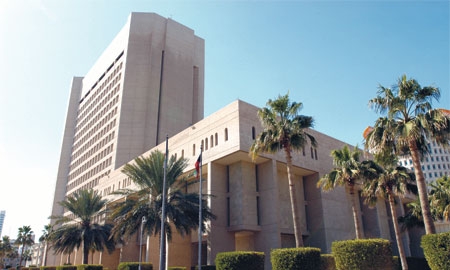In the enormous challenge to alleviate poverty through economic development and humanitarian aid, there are many Islamic organizations, particularly in the Arab world, that are funding projects across the region and beyond to Africa and Asia. One such organization that has been at the forefront of developmental assistance for over 50 years is the Kuwait Fund for Arab Economic Development.
As the first development organization to be set up by a developing country, the Kuwait Fund (as it is commonly known) was created in 1961 to assist in the plight of its fellow Arab states, going on to expand its activities to include all developing nations 13 years later. “The Kuwait Fund has made great stride on all frontiers since it was established in 1961,” says
Director General of the Fund, Abdulwahab A. Al-Bader. “[It] has grown substantially over the past years both in terms of its resources and range of activities to provide concessionary loans as well as grants to 104 developing countries.”
The objective of the Fund is to advance socio-economic progress by extending loans and grants to finance development and infrastructure projects, whilst also providing technical assistance to finance the costs of the feasibility studies of projects, as well as the training of nationals of the borrowing countries.
“It is well known that Millennium Development Goals (MDGs) were officially established by the United Nations in 2000. The first of these goals is eradicating extreme poverty and hunger. The Kuwait Fund has been keen since its inception to address the issue of poverty alleviation and the economic empowerment of the poor. This particular focus was highlighted by the Fund’s committing about $17 billion to concessionary loans to developing countries, covering sectors such as agriculture, services, and other vital infrastructure projects that provide substantial employment to poor people in developing countries and hence improve tremendously their living standards,” explains the incumbent Director General.
Recent examples of the many diverse projects undertaken by the Fund include an $87 million loan agreement with Sudan towards financing an irrigation project aimed at contributing to food security, and a $15 million loan to Ghana for the construction of an emergency trauma center in Accra.
It’s through work such as this that for over half a century the Kuwait Fund has been a true representation of the generous nature and the honorable values of Islam. It was in fact the generous spirit of the Kuwaiti government – who wanted to see wealth generated from newly-discovered oil used for the benefit of Kuwait and its Arab neighbors – that led to the establishment of the Fund shortly after independence.
In 1970, the UN called on all governments to give a minimum of 0.7% of GNP for foreign development assistance. “Kuwait has been generous by international standards, as it has exceeded the 0.7% ratio for many years,” states Mr. Al-Bader. In fact, thanks to the Fund, Kuwait has had a higher foreign assistance ratio than many other capital rich countries.
Indeed, as Kuwait is one of the founding members of the OIC, the organization has been inspired and sought to benefit from the experience of the Kuwait Fund towards the Islamic cause for international socio-economic betterment.
One of the OIC’s principle goals has been to eradicate poverty in member states through economic development. With some of its members being amongst the poorest nations in the world, it has promoted economic cooperation between richer and poorer member states, which has led to significant economic improvements in these developing Islamic nations.
However, due to their geographical position, many member states of the OIC face grave challenges that are a constant hindrance to their economic development – be they natural disasters such as flooding or earthquakes, or man-made disasters as a result of war caused by political or religious tensions. The current situation in Syria is a prime example of the damage done to the lives of innocent citizens and to the economy of a nation in turmoil.
Following the South Asian tsunami of late December 2004, the OIC put in place its first concerted effort to tackle a humanitarian crisis. This was followed four years later by the creation of the department of International Cooperation and Humanitarian Affairs (ICHAD) by the 35th Council of Foreign Ministers. Through its humanitarian arm, the OIC has provided swift and indispensible support to member states that have been hit by crippling natural or man-made disasters, from war-torn Somalia and Afghanistan to the Philippines, following Cyclone Sendong, and Pakistan in the aftermath of unprecedented flooding in 2011.
OIC funding has resulted in the establishment of emergency housing, new schools, training centers, water wells, hospitals and health clinics. The OIC has been on hand for millions of refugees displaced by conflicts in the Middle East and North Africa; most recently it has been providing support for Syrian refugees and opened in July a Psychosocial Trauma Center in Turkey for those who have fled the ongoing civil war that has wreaked havoc upon their homeland.
And so while it is unfortunate truth that many developing countries, and their citizens, will continue to need all the help that they can get in order to reach their goal of total independence, and indeed realize the internationally shared goal of a world completely free of poverty, the crucial work of the Kuwait Fund – alongside that of the OIC and other Arab development organizations – means that a helping hand is never that far away.

1 COMMENT
Espectacular la cantidad de dinero que invierten